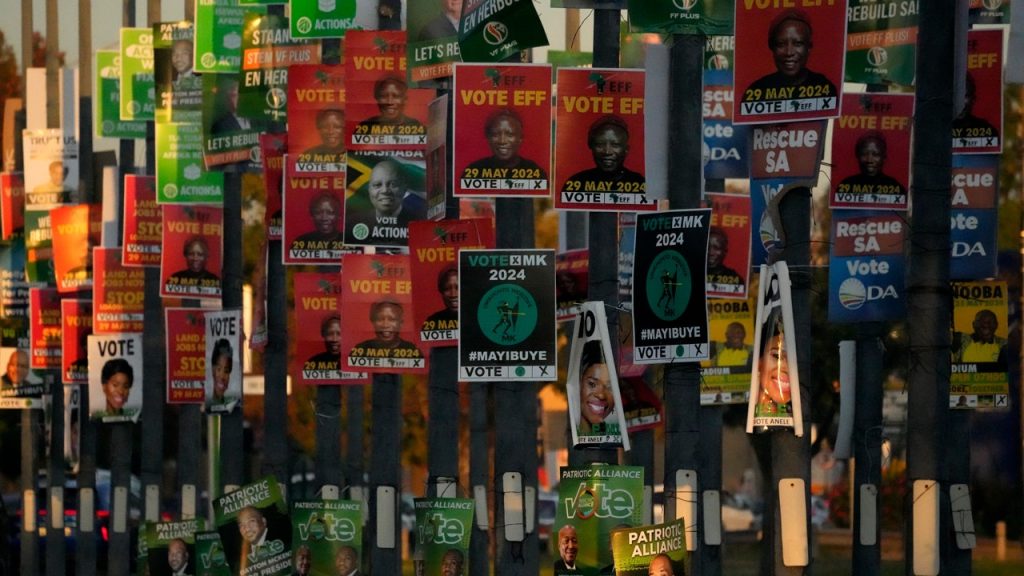South Africa’s upcoming election will determine the future of the ruling African National Congress (ANC), which has been in power since the end of apartheid 30 years ago. President Cyril Ramaphosa and the ANC are facing challenges as opinion polls predict that the party may receive less than 50% of the national vote for the first time. Despite this decline in popularity, there is no clear replacement for the ANC, leading disillusioned South Africans to explore other opposition parties. Although the ANC is still expected to gain the largest share of votes, forming a coalition government may be necessary for it to stay in power.
South Africans do not directly vote for the president, but rather for parties that make up the National Assembly. The ANC has traditionally held a majority in Parliament since the end of apartheid, but this time they may need to enter into agreements with other parties to secure a majority and reelect Ramaphosa as president. The upcoming election will take place on May 29 across all nine provinces, involving over 27 million registered voters. This will be the country’s seventh fully democratic national election since apartheid was dismantled.
There are a record 70 political parties registered for the election, as well as independent candidates for the first time. The ANC, led by Ramaphosa, is facing competition from the centrist Democratic Alliance (DA) and the far-left Economic Freedom Fighters (EFF) led by Julius Malema. Despite the efforts of the main opposition parties, polls indicate that the ANC is still expected to receive the largest share of votes. However, the emergence of numerous new parties has added diversity to the political landscape in South Africa.
Unemployment and poverty are among the most pressing issues facing South Africa, with an unemployment rate of 32% and over half of the population living in poverty. Discontent among the Black majority, who feel that the ANC has not done enough to improve their lives, has led to a decline in support for the ruling party. Other key issues contributing to voter dissatisfaction include high rates of violent crime, government corruption scandals, failure of basic services, and a crisis within the state-owned electricity supplier leading to nationwide blackouts. These challenges have further strained the struggling economy.
While the ANC is still expected to receive the largest share of votes, forming a coalition government may not be a straightforward solution to the country’s deep-seated issues. Despite the decline in popularity of the ruling party, there is no clear alternative to replace the ANC. The upcoming election will be crucial in determining the country’s future trajectory, as South Africans seek to address longstanding challenges such as high levels of unemployment and inequality. The outcome of the election will have significant implications for the future governance of Africa’s most advanced economy and the wellbeing of its people.













